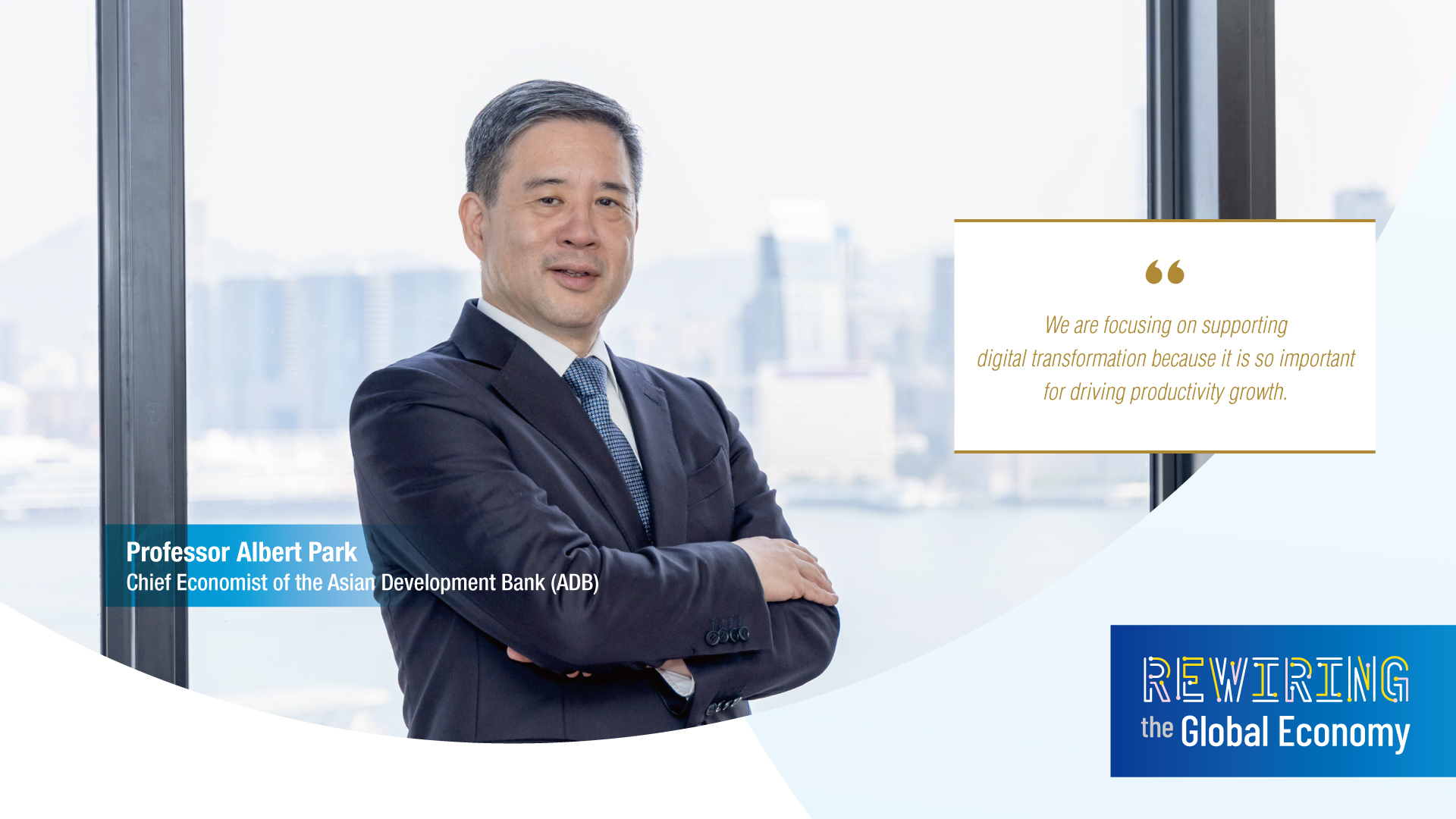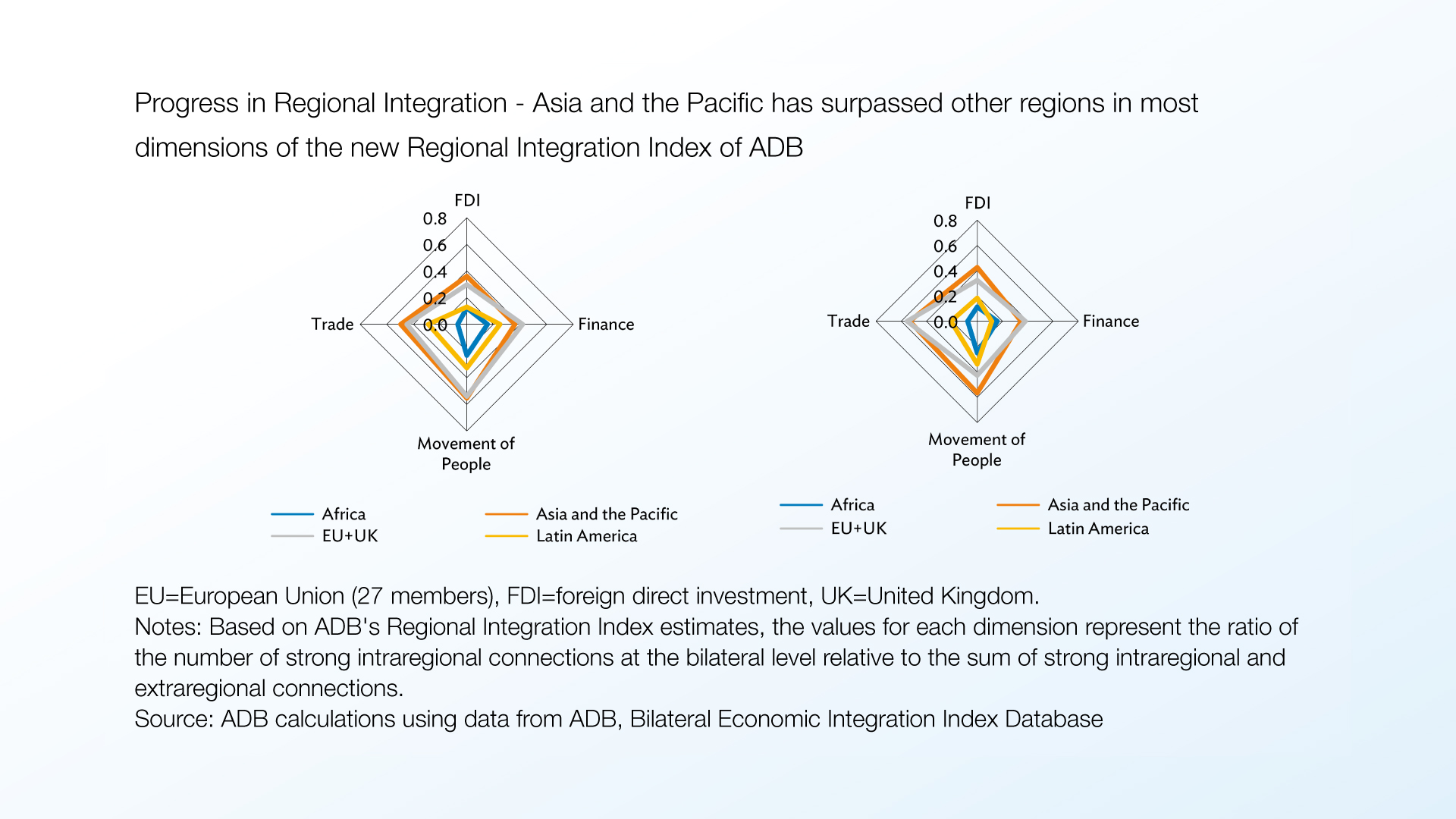
In a time of heightened uncertainty, Professor Albert PARK, Chief Economist of the Asian Development Bank (ADB), believes Asia can offer a blueprint for stable growth.
In today’s rapidly evolving global economy, the emerging markets should no longer be seen as passive participants, but more as dynamic architects well placed to reshape the international system of trade and finance.
That is the view of Professor Albert Park, Chief Economist of the Asian Development Bank (ADB), and Director General of its Economic Research and Development Impact Department, who believes that Asia will be a key region for economic dynamism, resilience, and strategic opportunity in the years ahead.
"The economic importance of emerging markets continues to grow relative to advanced countries," he said, highlighting a fundamental shift in global economic power. "If you look at the G20, the GDP of the non-G7 members is now bigger than that of the G7."
This is a truly significant statistic. It underscores the profound redistribution of economic influence which has taken place over the past two decades. And it means that more countries, particularly those in Asia, have an increasing say in setting the global economic agenda.
"Asia now accounts for nearly half of global GDP and most of global growth," Park said. In emphasizing the region's unprecedented economic dynamism, he also noted that countries like China and India as the region’s largest economies play a key role in this transformation.
Of course, one thing that may slow these developments is the current uncertainty caused by newly imposed tariffs. In the short term, at least, this raises the prospect of a move towards more protectionist policies and greater fragmentation of the global economy.
"Advanced economies, especially in the US, have questioned whether open trade has served the interests of their workers," Park said. He believes that this trend towards greater trade restrictions threatens the open economic model that has driven much global prosperity and brought benefits to so many people.
Importance of Strategic Engagement
In his opinion, the best way to keep moving forward lies in continued openness and strategic engagement.
"Being part of global value chains is what raises your capacity and productivity," he said.
Historically, periods of globalization have consistently benefited countries that remain open to trade and investment. This is especially the case for lower-income economies seeking to catch up with advanced economies which depends on transferring technologies through trade and foreign direct investment.
In this respect, regional economic integration emerges as a critical strategy.
"We see organizations like BRICS and other platforms helping emerging markets to coordinate their own policies," Park said.
Greater regional cooperation can allow smaller economies to amplify their collective voice and negotiate more effectively on the world stage. It also helps them to keep pace with the digital transformation and technological innovations that are key drivers of the current phase of economic evolution.
"We are focusing on supporting digital transformation because it is so important for driving productivity growth," Park said, adding that the ADB is particularly focused on ensuring this transformation is inclusive. “It is important to avoid digital divides while maximizing how digital technologies can overcome barriers of remoteness."
He also emphasized that the role of artificial intelligence (AI) and other emerging technologies in creating positive change cannot be overstated.
"With AI on top of digitalization, there is a huge amount of investment occurring," Park said. The implications of all this for productivity and employment remain uncertain, but one thing is clear: it is crucial for emerging economies to adopt and embrace the latest technologies if they are to maintain their competitive edge in industrial output and other key areas.
Regarding this, Professor Park believes that a pragmatic approach to economic policy is the way forward for these emerging markets.
"Most countries in Asia want to focus on having good relations with all countries, and to focus on their own development objectives," he said. Staying non-aligned allows them to navigate complex geopolitical landscapes while maintaining economic momentum. Whenever necessary, the ADB is also ready to provide financial supporting or technical assistance on practical steps needed to effect transformation.
"We do quite a lot of work on promoting trade facilitation, especially for small and medium-sized enterprises," Park said. This includes providing trade finance, supporting regional economic forums, and helping countries understand and leverage existing trade agreements. There are also forward-looking initiatives to invest in infrastructure for future growth and to develop human capital, factors which remain critical for all developing economies in the Asia region. This requires taking a holistic approach to economic development, which goes well beyond simple financial metrics.
Good Reason for Optimism
Looking ahead, he remains optimistic about the general outlook for the region, despite the undeniable headwinds that are currently causing concern.
"Asia continues to be the most dynamic region in the world," he said. "We are projecting about 5% growth, reflecting the hard work of millions of people and sound economic stewardship by many governments."
In his view, Asia has long possessed a unique combination of innovation, adaptability and strategic economic planning that sets it apart. This gives rise to a characteristic dynamism which, backed by rapid advances in technology and pragmatic policies, will bring new opportunities and should inspire optimism.
Indeed, countries like Vietnam, Singapore, and India are actively reshaping economic paradigms and creating models and standards from which others can learn.
"Regional economic integration is deepening," Park said, noted that this is a critical advantage. Today, the majority of trade and foreign direct investment in Asia comes from within the region itself.
Being able to rely on this “internal” economic ecosystem creates a strong buffer against any global uncertainties, and makes it possible to maintain growth momentum even if at a slightly reduced pace.
With a young, increasingly educated workforce, Asia also possesses another major advantage. This demographic represents not just an expanding consumer market, but also the skilled human capital to power new hubs for tech and financial innovation.
"Up to now, countries have been very pragmatic in managing macroeconomic fundamentals effectively to weather multiple global shocks," Park said, alluding to challenges like the COVID-19 pandemic, the impact of climate change, and ongoing inflationary pressures.
However, this experience, along with the other obvious advantages, qualifies the region to be a primary architect of the global economic system that emerges from the present period of hesitancy and concern.
Undoubtedly, the challenges ahead will be significant, whether attributable to protectionist policies, supply chain disruptions, or broader geopolitical tensions.
"We face a complex situation, but not being in the game is not really an option," Park said.
For this reason, he advises Asia’s emerging economies to continue to adapt, innovate, and remain strategically engaged. By committing to free trade and investment and inclusive policies, these nations are proving that economic success is not about size or historical advantage, but about openness, innovation, and a pragmatic, forward-looking approach to dealing with challenges. By doing this, Asia may very well be holding the blueprint for the rewiring of the global economy.





